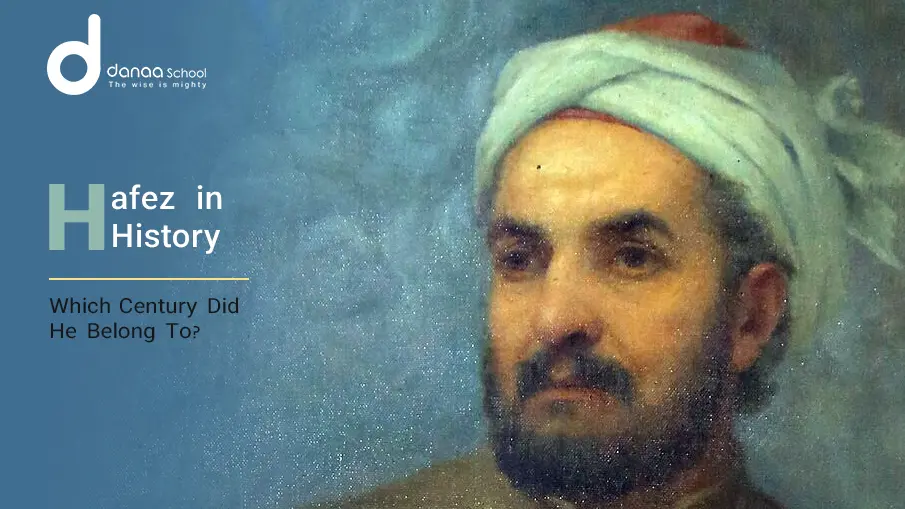Hafiz, the beloved Persian poet, has captivated hearts for centuries with his profound and mystical verses. His poems, often infused with themes of love, spirituality, and the divine, have earned him a revered place in the world of poetry. In this article, we are exploring the timeless beauty of Hafiz Poems.
The Life of Hafiz
Born in the 14th century in Shiraz, Iran, Hafiz, whose real name was Shams-ud-din Muhammad, lived during a time of great cultural and intellectual flourishing. Despite limited biographical details, it is known that Hafiz faced hardships in his early life, including the loss of his father.
His Journey as a Poet
Hafiz’s journey as a poet began at a young age. His exceptional talent for weaving words and creating evocative imagery soon became evident. He was well-versed in the Quran, which deeply influenced his poetic style and themes.
Influence of Sufism on His Work
Sufism, the mystical branch of Islam, played a crucial role in shaping Hafiz’s poetry. The quest for divine love and union with the sacred is a central theme in Sufi philosophy, reflected in many of Hafiz poems.
The Essence of Hafiz’s Poetry
Hafiz’s poetry is rich with themes of earthly and divine love, joy, wine, and the fleeting nature of life. His verses often celebrate the beauty of the natural world, the ecstasy of spiritual union, and the eternal quest for truth.
Symbolism and Metaphors Used
Hafiz’s use of symbolism is profound. Wine often symbolizes divine love and spiritual intoxication, while the beloved represents God. His metaphors are layered, offering multiple interpretations and inviting readers to explore deeper meanings.
The Spiritual and Mystical Elements
At the heart of Hafiz’s poetry lies a deep spirituality. His works are imbued with mystical elements that reflect his Sufi beliefs. The search for the divine, the ephemeral nature of earthly life, and the joy of divine love are recurrent themes.
Hafiz’s Love Poetry
Love in Hafiz’s poetry transcends the mundane. It is both a worldly and a divine experience, merging the human experience of love with the longing for spiritual union. This duality is a hallmark of his poetic style.
Famous Hafiz Love Poetry Examples
Among Hafiz’s most celebrated love poems is “The Sun Never Says.” This poem beautifully encapsulates the selflessness and unconditional nature of divine love. Another beloved poem, “Even After All This Time,” speaks to love’s enduring and boundless nature.
The Connection Between Love and Spirituality
In Hafiz’s work, love and spirituality are deeply intertwined. His poems suggest that true love is a path to divine enlightenment and that the lover’s longing mirrors the soul’s desire for union with the divine.
Impact and Legacy of Hafiz
Hafiz’s influence on Persian literature is immense—his unique blend of lyrical beauty and spiritual depth set Persian poetry standards. Subsequent poets have drawn inspiration from his work, ensuring his legacy endures.
Global Impact and Translations
Hafiz’s poetry has transcended cultural and linguistic boundaries. Translations by scholars like Daniel Ladinsky have introduced his work to the Western world, broadening his audience and impact.
Modern Interpretations and Adaptations
Contemporary poets and artists continue to reinterpret and adapt Hafiz’s work, finding new relevance in his timeless themes. His poetry has been set to music, visual art, and modern literature, reflecting its enduring appeal.
Daniel Ladinsky and Hafiz
Daniel Ladinsky is a modern poet and translator known for his renditions of Hafiz’s poetry. His work has significantly popularized Hafiz in the English-speaking world.
His Role in Popularizing Hafiz in the West
Ladinsky’s translations capture the spirit and essence of Hafiz’s poetry, making it accessible to a broad audience. His books, such as “The Gift” and “The Subject Tonight Is Love,” have been widely acclaimed.
Controversies and Criticisms
Despite his success, Ladinsky has faced criticism for taking creative liberties in his translations. Some purists argue that his renditions stray too far from the original texts, though many readers appreciate his interpretive approach.
The Sufi Influence in Hafiz’s Poetry
Sufism is a mystical form of Islam that seeks a direct and personal experience of God. Sufi poets like Hafiz use poetry to express their spiritual journeys and insights.
How Sufi Philosophy is Reflected in His Poems
Hafiz’s poetry is infused with Sufi philosophy. It often explores themes of divine love, the soul’s journey, and the ecstasy of spiritual union, reflecting the core tenets of Sufism.
Comparison with Other Sufi Poets
Hafiz is often compared to other great Sufi poets like Rumi. While both poets explore similar themes, Hafiz’s work is known for its lyrical beauty and playful tone, in contrast to Rumi’s more didactic style.
Analyzing Popular Poems of Hafiz
“The Sun Never Says”
This poem is a celebration of unconditional love. Hafiz uses the metaphor of the sun, which never asks for anything in return, to illustrate the selfless nature of true love.
“Even After All This Time”
In this poem, Hafiz reflects on the enduring power of love. The lines suggest that love, much like the divine, remains constant and unwavering despite the passage of time.
“I Have Learned So Much”
This poem encapsulates Hafiz’s philosophical musings on life and learning. It speaks to the wisdom gained through experiences and the importance of embracing life’s journey.
Hafiz’s Use of Imagery and Language
Hafiz’s poetry is rich with visual and sensory imagery. He paints vivid pictures with words, allowing readers to experience the beauty and mysticism of his world.
The Lyrical Quality of His Verses
The musicality of Hafiz’s verses is one of their defining features. His use of rhyme, rhythm, and cadence makes his poetry a joy to read and recite.
Use of Everyday Language to Convey Deep Meanings
One of Hafiz’s greatest strengths is hiHafiz’s ability to use simple, everyday language to convey profound spiritual truths. His poems are accessible yet deeply meaningful, resonating with readers from all walks of life.
Hafiz’s Philosophy of Life
Hafiz’s poetry explores several key philosophical ideas, including the impermanence of life, the pursuit of divine love, and the importance of living in the present moment.
How These Are Expressed in His Poems
These ideas are woven throughout Hafiz’s poetry. His verses often encourage readers to embrace the fleeting nature of life, find joy in the present, and seek a deeper connection with the divine.
Relevance to Contemporary Readers
Hafiz’s philosophy remains relevant today. His timeless wisdom and insights inspire readers to live more mindful and spiritually enriched lives.
The Mystical Experience in Hafiz’s Poetry
Mystical experiences, characterized by a sense of unity with the divine, are a recurring theme in Hafiz’s poetry. His verses often describe moments of ecstatic connection with God.
How Hafiz Conveys These in His Poems
Hafiz conveys his mystical experiences using vivid imagery and metaphor. His poems often describe the overwhelming joy and love accompanying these moments of divine union.
Examples from Specific Poems
In “I Have Learned So Much,” Hafiz describes the transformative power of love and the mystical insights gained through spiritual practice. Another example is “The Sun Never Says,” where the sun’s selfless giving symbolizes divine love.
Love and Divinity in Hafiz Poems
Hafiz’s poetry often blurs the lines between human and divine love. His verses suggest that true love reflects divine love and that the lover’s yearning mirrors the soul’s longing for God.
Poems That Best Illustrate This Theme
“The Sun Never Says” and “Even After All This Time” perfectly exemplify how Hafiz intertwines human and divine love in his poetry. Both poems celebrate the boundless and unconditional nature of love.
Learning from Hafiz Today
Hafiz’s poetry offers timeless lessons on love, spirituality, and the importance of living in the present moment. His verses encourage readers to seek joy, embrace life’s fleeting nature, and cultivate a deeper connection with the divine.
How His Poems Can Inspire Mindfulness and Spirituality
Hafiz’s focus on the present moment and the divine can inspire readers to practice mindfulness and deepen their spiritual practice. His poetry invites readers to find beauty and meaning in everyday life.
Taking It Further: Studying Rumi and Hafiz
Studying Sufi poets like Hafiz and Rumi can offer profound insights into the nature of love, spirituality, and the human experience. Their poetry serves as a guide for those seeking a deeper understanding of life and the divine.
Introduction to Danaa School’s Rumi Poetry Course
The Danaa School offers a comprehensive course on Rumi’s poetry for those interested in exploring Sufi poetry further. This course provides an in-depth understanding of Rumi’s work and its spiritual significance.
How the Course Can Deepen Understanding of Hafiz and Rumi
The Danaa School’s Rumi Poetry Course enhances appreciation of Rumi’s poetry. It sheds light on the shared themes and philosophies in the works of Hafiz and other Sufi poets. This holistic approach enriches the reader’s understanding and appreciation of Sufi literature.
FAQs
How many poems did Hafiz write?
Hafiz is believed to have written around 500 ghazals (lyric poems) and various other forms of poetry. However, only a portion of his work has survived over the centuries.
Are Rumi and Hafiz the same person?
No, Rumi and Hafiz are not the same person. Rumi was a 13th-century Persian poet and Sufi mystic, while Hafiz lived in the 14th century. Both are renowned for their spiritual and mystical poetry.
What is the famous work of Hafiz?
The most famous work of Hafiz is his collection of ghazals known as the “Divan of Hafiz.” This compilation has been widely read and cherished for its beauty and spiritual depth.
Was Hafiz a Sufi?
Yes, Hafiz was a Sufi poet. His poetry reflects the mystical and spiritual elements of Sufism, focusing on divine love, the ephemeral nature of life, and the pursuit of a deeper connection with God.
Who is Hafiz in Iran?
In Iran, Hafiz is celebrated as one of the greatest Persian poets. His works are considered literary treasures, and his mausoleum in Shiraz is a revered site that attracts visitors worldwide.
Conclusion
Hafiz’s poetry continues to captivate and inspire readers with its timeless themes of love, spirituality, and the divine. His unique blend of lyrical beauty and profound wisdom offers a window into the mystical world of Sufism. By exploring Hafiz poems, readers can find inspiration, joy, and a deeper connection with the divine.
For those eager to explore Sufi poetry, the Danaa School’s Persian Poetry Course provides an excellent opportunity to deepen their understanding and appreciation of this rich literary tradition.










